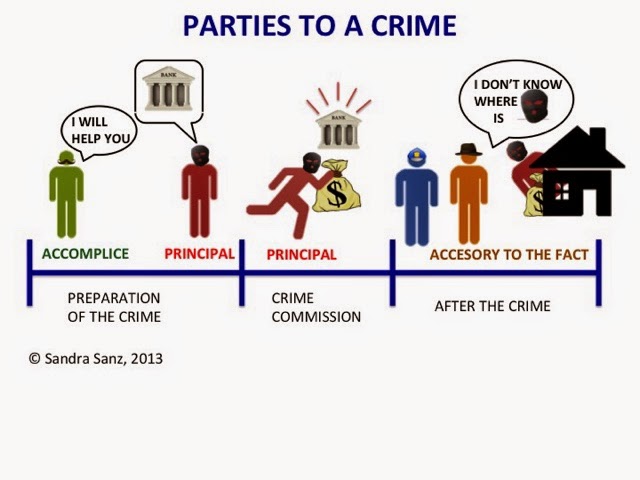State of Lawlessness/Lawless Violence Versus Proclamation of Martial Law
Hours after Davao City's night market was blasted on September 2, 2016, Friday, which claimed 14 lives and injured more than 60 others, Philippine President Rodrigo R. Duterte declared a State of Lawlessness in the island of Mindanao. A lot of people were clueless as to what the state of lawlessness is. Some have speculated that it might be the same as the MARTIAL LAW.
 |
| image taken from www.youtube.com |
The 1987 Philippine Constitution, specifically in Section 18 of Article VII, provides the power of the President as a Commander-in-Chief to call for a state of lawlessness or lawless violence. What is given in the constitution is not the state of lawlessness but a state of lawless violence.
Thus, "The President shall be the Commander-in-Chief of all armed forces of the Philippines and whenever it becomes necessary, he may call out such armed forces to prevent or suppress lawless violence, invasion or rebellion."
In essence, the armed forces are tapped to prevent or suppress lawless violence, invasion or rebellion. In this manner, we may see and feel the presence of the military in Mindanao while the state of lawless violence is in effect. Of course, declaration of a state of lawless violence is only done when it becomes necessary.
How about in the proclamation of martial law or in the suspension of the writ of the habeas corpus?
"In case of invasion or rebellion, when the public safety requires it, the President may, for a period not exceeding sixty days, suspend the privilege of the writ of habeas corpus or place the Philippines or any part thereof under martial law."
| image taken from www.rappler.com |
Only in cases of invasion or rebellion and when the safety requires that the President may suspend the privilege of the writ of habeas corpus or declare martial law for a period not exceeding 60 days.
It is clear that in the state of lawless violence, the privilege of the writ of habeas corpus is not suspended. There is no martial law in the state of lawless violence.
Thus, before a martial law is declared or the privilege of the writ of habeas corpus is suspended, there must be a case of invasion or rebellion and when the public safety requires it.
"Within forty-eight hours from the proclamation of martial law or the suspension of the privilege of the writ of habeas corpus, the President shall submit a report in person or in writing to the Congress. The Congress, voting jointly, by a vote of at least a majority of all its Members in regular or special session, may revoke such proclamation or suspension, which revocation shall not be set aside by the President."
In the state of lawless violence, the President is not required to submit a report to the Congress. The Congress cannot revoke the declaration of a state of lawless violence.
However, in the proclamation of martial law or the suspension of the privilege of the writ of habeas corpus, the President shall submit a report either personally or in writing to the Congress within 48 hours from the proclamation or the suspension.
The Congress may revoke the proclamation or the suspension by a vote of at least a majority, voting jointly, of all its Members in regular or in special session.
"Upon the initiative of the President, the Congress may, in the same manner, extend such proclamation or suspension for a period to be determined by the Congress, if the invasion or rebellion shall persist and public safety requires it."
The suspension of the privilege of the writ of habeas corpus or the proclamation of martial law shall be for a period not exceeding 60 days. However, it may be extended for a period to be determined by the Congress upon the initiative of the President. The Congress may extend it by a vote of a least a majority of all its Members, voting jointly, in a regular or special session. The extension shall be anchored on the fact that the invasion or the rebellion shall persist and the public safety requires it.
"The Congress, if not in session, shall, within twenty-four hours following such proclamation or suspension, convene in accordance with its rules without need of a call."
So the Congress shall convene within 24 hours following the proclamation or suspension without need of a call.
"The Supreme Court, may review, in an appropriate proceeding filed by any citizen, the sufficiency of the factual basis of the proclamation of martial law or the suspension of the privilege of the writ or the extension thereof, and must promulgate its decision thereon within thirty days from its filing."
While the proclamation of a martial or the suspension of the privilege of the writ of the habeas corpus may be reviewed by the Supreme Court, there is no provision saying the same thing to the declaration of a state of lawless violence.
The Supreme Court may only review the sufficiency of the factual basis of the proclamation of martial or the suspension of the privilege of the writ if an appropriate proceeding is filed by any citizen of the country. If no appropriate proceeding is filed, the Supreme Court cannot review the same.
In sum, the following are the differences between the declaration of a state of lawless violence and the proclamation of martial law:
1. The President may call out the Armed Forces of the Philippines, whenever it becomes necessary to prevent or suppress lawless violence, invasion or rebellion in a declaration of a state of lawless violence.
The President, in case of invasion or rebellion, when the public safety requires it, may place the Philippines or any part thereof under martial law.
2. The privilege of the writ of the habeas corpus is not suspended in the declaration of a state of lawless violence unlike in the proclamation of martial law.
3. There is no period or time frame for a declaration of a state of lawless violence while the proclamation of martial is for a period not exceeding 60 days.
4. The Congress may not revoke the declaration of a state of lawless violence but the proclaimed martial law may be revoked by the Congress by a majority vote, voting jointly.
5. The state of lawless violence cannot be reviewed by the Supreme Court while the proclamation of martial law may be reviewed by the Supreme Court if an appropriate proceeding is filed by any citizen of the country.


Comments
Post a Comment